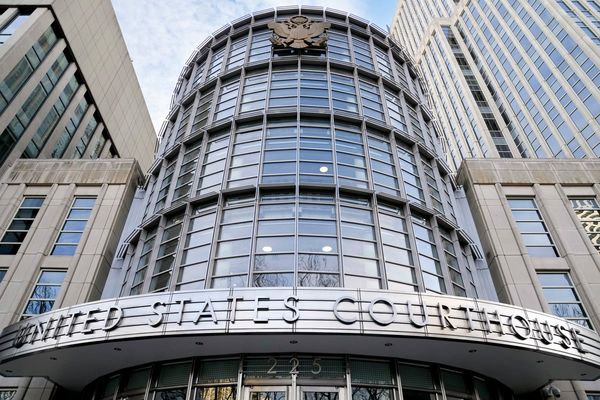
The writer who alleges Donald Trump raped her in the dressing room of a department store has taken the stand in her battery and defamation lawsuit.
Former magazine columnist E Jean Carroll testified in chilling detail on Wednesday (local time) about the alleged assault 30 years ago in New York.
She told jurors at a civil trial that the former US president sexually assaulted her and defamed her by lying about it.
“I’m here because Donald Trump raped me, and when I wrote about it, he lied and said it didn’t happen,” E Jean Carroll said in the Manhattan Federal Court.
“He lied and shattered my reputation, and I’m here to try and get my life back.”
Carroll, 79, a former Elle magazine advice columnist, is seeking unspecified damages from Mr Trump, 76, who leads the Republican field in the 2024 presidential campaign.
She is suing over an alleged encounter in a Bergdorf Goodman department store dressing room in late 1995 or early 1996, where she says Mr Trump raped her until she was able to flee.
Carroll is suing Mr Trump for defamation after he denied her rape claim in an October post on his Truth Social media platform, saying he had not known her, that she was not his “type” and that she made up the claim to sell her memoir.
She is also suing under New York’s Adult Survivors Act, which lets adults sue their alleged abusers long after statutes of limitations have run out.
Carroll’s testimony
Carroll testified that she had met Mr Trump years before the alleged rape, finding him “very personable” and a “man about town”.
At Bergdorf, Carroll recalled that she was leaving the store when Mr Trump recognised her and held up his hand, prompting her to stop.
“He said, ‘Hey, you are that advice lady,'” Carroll recalled.
“I said, ‘Hey, you are that real estate tycoon.'”
Carroll said she and Mr Trump engaged in banter, describing his tone as “joshing,” with Mr Trump seeking to buy lingerie for another woman.
She said Mr Trump asked her to try on a piece of lingerie — a sheer grey bodysuit — prompting her to joke that he should try it on.
Carroll said Mr Trump then ushered her to an open dressing room, shut the door, shoved her against a wall and pulled down her tights.
Despite her struggles, Carroll alleged he inserted his fingers and then his penis inside her.
Carroll choked up and fought back tears as she described pushing him back.
Asked by her lawyer if she told Mr Trump “no”, Carroll said: “I don’t recall saying it. I may have said it.”
“When you ask me what I did in that moment … I always think – I always think of why I walked in there to get myself in that situation.
“But I’m proud to say I did get out, I got my knee up and pushed him back.”

Carroll said she blamed herself at the time and feared she would lose her job and Mr Trump would retaliate if she reported him.
She also said the damage was long-lasting.
“It left me unable to ever have a romantic life again,” she said.
Lawyers for Mr Trump are expected to question Carroll, including over her inability to remember when the encounter took place.
She recalled it was on a Thursday night but “I can’t say I’m 100 per cent sure”.
A six-man, three-woman jury is expected to decide whether to hold Mr Trump liable for damages, and, if so, how much he owes.
The trial began on Tuesday (local time), and is expected to last one to two weeks.
Mr Trump stood by his criticism of Carroll in two posts on Wednesday on Truth Social, prompting US District Judge Lewis Kaplan to warn he could face more legal problems if he kept discussing the case.
“Does anybody believe that I would take a then almost 60 year old woman that I didn’t know, from the front door of a very crowded department store, (with me being very well known, to put it mildly!), into a tiny dressing room,” Mr Trump wrote.
“She didn’t scream? There are no witnesses? Nobody saw this?”
Mr Trump also called Carroll’s accusations “a made-up SCAM” and said: “This is a fraudulent & false story — Witch Hunt!”
That led Judge Kaplan to tell Mr Trump’s legal team, outside the jury’s presence, that Mr Trump appeared to be “endeavouring, certainly, to speak to his quote-unquote public” and to the jury about matters that have “no business being spoken about”.







